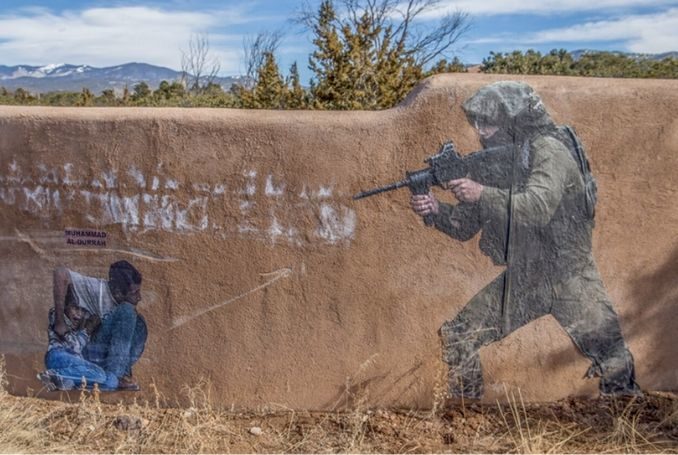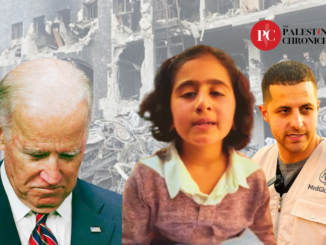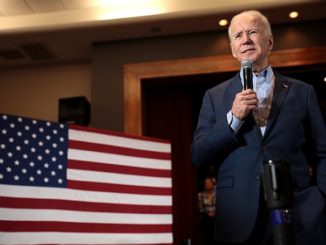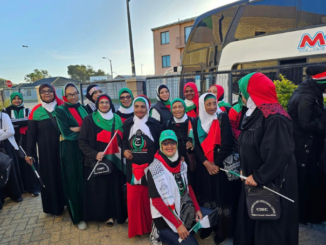
By Benay Blend
In an article titled “The Struggle of Native Americans is the Struggle of Palestinians,” Rebecca Miles, Executive Director of the Nez Perce tribe, relates how the struggle for resources on the part of these two groups bear similarities. Palestinians, she explains, are yet another indigenous group of people severed from their land, waterways, and ways of life.
Because both groups face the same “institutional colonialism and racism,” Miles wants to “communicate the similarities we share as people” along with a “sense of camaraderie” in order to facilitate that “help[ing] each other and stick[ing] together” because the issues are the same. Written two years ago, her words are no less pertinent today as both groups of people, already under siege, now are faced with the specter of the Coronavirus.
At the beginning of March, before the nightmare became a reality, Ramzy Baroud posed the following question: “What if the Coronavirus reaches the besieged Gaza Strip?” Already placed under political quarantine by Israel, Palestinian communities would presumably have a difficult time because of a lack of healthcare as well as medical facilities equipped to handle a pandemic.
For Gaza, already faced with “chronic power outages, gaps in critical services, including mental health and psychosocial support, and shortages of essential medicines and supplies,” and hospitals full of injuries from the Great Return March, the prospect of managing the crisis appeared bleak.
As Baroud explains, 97% of Gaza’s water supply is not drinkable, so now, during the crisis, there is insufficient water to sterilize instruments as well as hands. Moreover, Oxfam’s Laila Barhoum adds that there are 70 intensive care beds and 62 ventilators available for 2 million Palestinians in Gaza. “No amount of ‘preparedness’ in Gaza,” Baroud concludes would have compensated for Israel’s “politically-imposed ‘quarantines’—also known as apartheid.”
On the Navajo Nation, the situation is similar. As of March 31, 2020, the Navajo Department of Health and Navajo Area Indian Health Service, in coordination with the Navajo Epidemiology Center, announced that the number of positive tests for COVID-19 had reached 214, along with seven confirmed deaths.
In a dispatch from The Red Nation, an indigenous activist group based in New Mexico but with branches now in other states, there are listed two aspects of the current crisis: the danger of illness and death from the disease, and the larger context of “capitalism [that] has proven biologically unsuitable for life.” Typical of health care in a capitalist system, it is the poor, those in ICE detention camps and on isolated Indian reservations, and incarcerated people who will pay the highest price.
In Palestine, there was very little that could be done to prepare for the pandemic due to life under the Occupation. In America, The Red Nation continues, there was the possibility of being on top of the situation, but “preparedness and human solidarity are not profitable in a global economic system.” This is exactly what Naomi Klein calls the Shock Doctrine, an opportunity that arises during a disaster for the ruling class to garner even more than its fair share of wealth.
Another piece of the problem is that the United States does not collaborate with others who have more advanced tests and treatments, partly because that would hinder corporate profits of companies who are perhaps far behind in research. For example, advances on the part of Chinese and Cuban doctors are not being used even though these physicians are helping other affected countries.
On the Navajo Nation, as in Palestine, there are extenuating circumstances due to long-held settler-colonialism. For example, according to Melissa Tso (Navajo), community activist and organizer for The Red Nation, some families are in need of paper plates, plastic utensils and water because Chapter Houses, where they have gone to receive water, are now closed. These homes have no running water and in some cases no electricity or indoor plumbing.
Moreover, the lack of internet and technology means that public schools are handing out paper packets to their students. This procedure in itself could spread the virus. Teachers have had to go into work to put these packets together, and families then come into school to retrieve them, all of which increase risks of spread.
What Indigenous people do have, that capitalist systems do not, is an abundance of resilience and collective strength that will arm them through the struggle. Writes The Red Nation: “The crisis has exposed the capitalist system for what it is,” in short, “anti-life.” In Palestine, the poet Rafeef Ziadah’s verse “We Teach Life, Sir” is alive and well. As exemplified by shoemaker Amjad Zaghir who very quickly converted his Hebron factory in order to produce “thousands of masks a day,” Palestinians are rising to the occasion.
“If you’re not fighting for life in such a system,” claims Justine Teyba (Pueblo) of The Red Nation, “what else is there to do [with] your life?” Moreover, if “you’re not putting [your prayers] into praxis,” what good are they? Prayer and praxis, both practices that led Teyba to be a seed keeper in these hard times, and steered her towards a “path to farm and feed [her] people.” Her journey leads away from practices that devalue basic needs, and towards a tradition that relies on human values.
“COVID-19 isn’t an individual problem,” explains The Red Nation. “How we respond must be collective, with human dignity and love.” Not to diminish and/or romanticize the seriousness of the struggle, but it seems that Indigenous nations are doing what they have always done, i.e. building the collective ability to fight back.
At a recent Town Hall, Navajo Nation President Jonathan Nez explained that “once again,” the United States government has overlooked its first people, not just on Navajo land but in “all of Indian Country.” As “strong people,” Nez continued, “we have overcome tough times and we’re utilizing our resources to help our people out there.” Despite the lack of U.S. government aid, Nez is “hearing about people hauling water for their grandparents, people helping get water and hay for their elders out there. That’s Navajo right there ― helping each other out to overcome this.”
The time is ripe to create a new paradigm based on sharing resources, creating mutual aid networks, and lifting sanctions that cause so much suffering for people already in dire straits. As China sends Coronavirus kits and ventilators to Palestine, and perhaps also a team of medical experts; as Palestinian farmers leave produce for those who cannot afford to pay; and as we spent the day arranging with a friend of a friend to distribute much-needed water and other supplies to people on the Navajo Nation, perhaps we won’t go back to “normal.”
As Peter Baker suggests, conceivably the crisis that is “destabilizing” the world will have a “liberating” outcome, one far removed from capitalism and settler-colonialism of the past.
– Benay Blend earned her doctorate in American Studies from the University of New Mexico. Her scholarly works include Douglas Vakoch and Sam Mickey, Eds. (2017), “’Neither Homeland Nor Exile are Words’: ‘Situated Knowledge’ in the Works of Palestinian and Native American Writers”. She contributed this article to The Palestine Chronicle.

– Benay Blend earned her doctorate in American Studies from the University of New Mexico. Her scholarly works include Douglas Vakoch and Sam Mickey, Eds. (2017), “’Neither Homeland Nor Exile are Words’: ‘Situated Knowledge’ in the Works of Palestinian and Native American Writers”. She contributed this article to The Palestine Chronicle.








Russell Means and Dennis Banks open my eyes global, the United Nations have heard the similarity of these two tribe, and e need to be heard.